MUSIC LEGEND KS BHAMRAH ON HIS MAGICAL JOURNEY AND MEANINGFUL NEW SONG
Brilliantly talented bhangra legend KS Bhamrah is one of the greatest heroes of British Asian music.
The legendary singer-songwriter has entertained audiences around the world as a respected solo artist and lead singer of iconic band Apna Sangeet. That pioneering career, which has lasted over 40 years with more than 600 songs, helped bhangra music and Punjabi culture go global. The mighty musical giant is still going strong with culturally connected classics and recently released his latest song Teeyan, which is a celebration of the Punjabi festival Teej.
Eastern Eye caught up with the Birmingham-based star to talk about his phenomenal journey, most memorable moment, recent song, why he has no unfulfilled ambitions, being called a legend and what he thinks of the British music scene today.
Did you ever imagine your music journey would be so long and successful?
When I came to the UK in 1979 it was to get married and find work. Music was something I had left behind in India and thought would only be done in my spare time. I never imagined becoming a full-time singer, songwriter, and performer, for more than 40 years now.
How do you reflect on your magnificent music journey?
It has been amazing. You have to remember that my music teaching was in my village, with whatever instruments we could get our hands on because money was tight. To reflect and be able to say I have toured the world numerous times, performed on stages such as Glastonbury, took my tumbi onto Top of the Pops and more, I couldn’t be happier.
Which of your many achievements are closest to your heart?
I was lucky to be part of a movement in the 1980s that established bhangra globally. I’ve lost count of the shows, concerts, and festivals I’ve played at. I could say performing at BBC Maida Vale, but in all honesty, it has to be performing alongside Panjabi MC on Top of the Pops (TOTP). Back then, it was the dream of every artist to be on that iconic show. The more impossible dream was to have a proper bhangra song on the TOTP stage and TV.

It was such an incredible moment…
It really did feel impossible. But 2003 was the year when the musical dreams of immigrants were realised when Mundian To Bach Ke charted at number five in UK and Panjabi MC took me to showcase my tumbi to the world. To be the man who played the most recognisable bhangra riff in history is something I am grateful to PMC for. His hard work and vision gave me a personal achievement I am most proud of.
What keeps the passion for music alive?
Happiness and no stress are key, not just in music but in life. I see so many who are always stressed and worried. I understand there are pressures, but every generation has their battles. The only way to combat them, which has helped keep my music passion alive, is to enjoy life. Don’t worry about little things and what people think; be the best you can be. That is the key to every success.
Tell us about your single Teeyan?
Teeyan celebrates female empowerment and life. The Punjabi festival of Teej is something that has grown over the years with many Teeyan De Mele taking place globally. I wanted to create something that would be ideal for ladies to enjoy when it’s that time of year. I have performed at many of these melas. To see sisters and young girls dancing together is such a wholesome family sight, and I just wanted to contribute with my song.
You are at your best on stage. Do you still love performing live?
Even today I love being on stage. The fact I still have a booking calendar in 2022 is incredible because I am ready to stop whenever the audience has had enough. I am still busy on the live circuit, with bookings already in for 2023. As long as people feel I have something to offer on stage, to make their big day special, I’ll be ready with my microphone and bhangra outfit to create special moments.
How do you feel about the British bhangra scene today?
I am not one who believes the scene today is any better or worse than at any other time. The thing is everything evolves in life. What we collectively did in the 1980s was a world away from what the stars of the 1970s were doing. UK-born artists in the 1990s did things differently. Today, we live in a fully accessible world where you are now battling with international artists to be recognised. If anything, it may be more difficult to stand out today, but the scene is positive. There are lots of new artists, new voices, and new sounds. They may not be my cup of tea, but it all adds to a scene that’s always evolving.
Does it disappoint you that the scene isn’t what it was?
As I said, every decade things change. Most people’s ‘disappointing’ is my ‘different’. I would like more shows and events for UK talent, especially young acts. We still get events to play at, which is great. But I do believe that established acts have to support new acts. I would love to see more events where we can share a stage together, entertain audiences, and support each other. That is one thing I would like to see more of.
What key music advice would you give the younger generation?
I hear from my son that apparently all you need to know today in music is on YouTube. I’m half joking, but any kind of learning is important. For younger acts, I would still say to learn the basics and make sure your pronunciations are correct. Don’t be scared to ask for help and advice if you are not sure. We had to do that, which is why we’ve succeeded. Use YouTube and social media to learn new things. Work together more and have fun making music.
Do you have any unfulfilled ambitions in music?
If my career stopped today, I would be more than happy. I came to the UK with nothing and managed to entertain audiences globally. What more could I ask for? As long as I have the ability to come up with an idea and deliver quality music, I will continue. When I’m told or feel the bar is dropping, I will call it a day.
What can we expect next from you?
(Laughs) I really don’t know. Being an independent artist, who has hit the music goals I wanted to and achieved milestones which I never thought possible, means I don’t feel pressure to make music. I have slowed down to do more cultural projects. I will always create dharmik projects every year. One thing I would like to do is connect with Punjabi acts in Pakistan and work with them. Bringing two Punjabs together isn’t something new in music, but it is not something I have been able to do, so would like to achieve that in future.
How do you feel when you are called a legend?
It is nice to be called a legend. It is nice to know that people respect your work and still appreciate you today. I missed my children’s birthdays, left my wife to run the house and, collectively, we sacrificed so much for decades just so I could go out to make people happy. To know that those sacrifices have been for the better, I am happy to be whatever the audience wants to call me.
What does music mean to you today?
When I was growing up music was fun. When it became a profession, it was fun and even today it’s still fun. This old dog is still rocking and rolling around the world, still making music. There is plenty left in the tank yet. I’m not finished yet. I’m still having way too much fun.

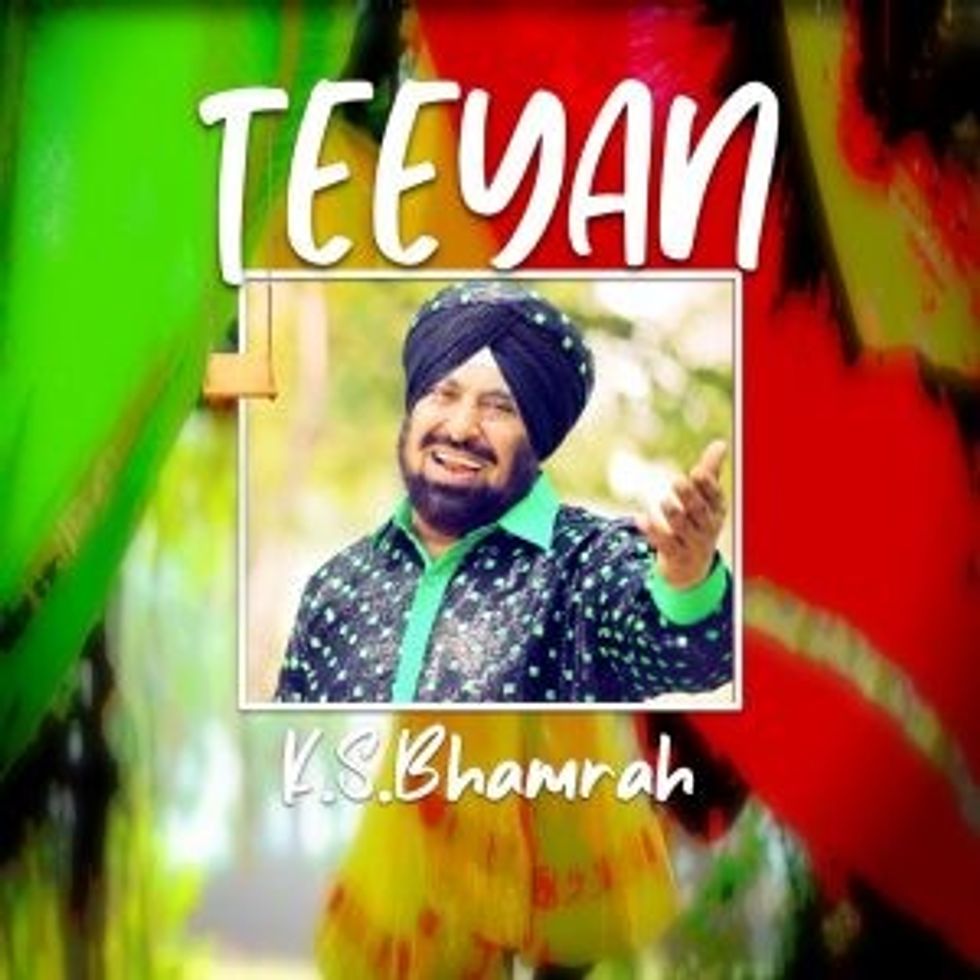





 Rajkummar Rao and Patralekhaa smiling during a public appearance earlier this year
Rajkummar Rao and Patralekhaa smiling during a public appearance earlier this year  Patralekhaa and Rajkummar pose together after an awards show
Patralekhaa and Rajkummar pose together after an awards show 










 Former child star Sara Arjun cast as Ranveer Singh’s romantic lead in 'Dhurandhar' at age 20 Facebook/Sara Arjun
Former child star Sara Arjun cast as Ranveer Singh’s romantic lead in 'Dhurandhar' at age 20 Facebook/Sara Arjun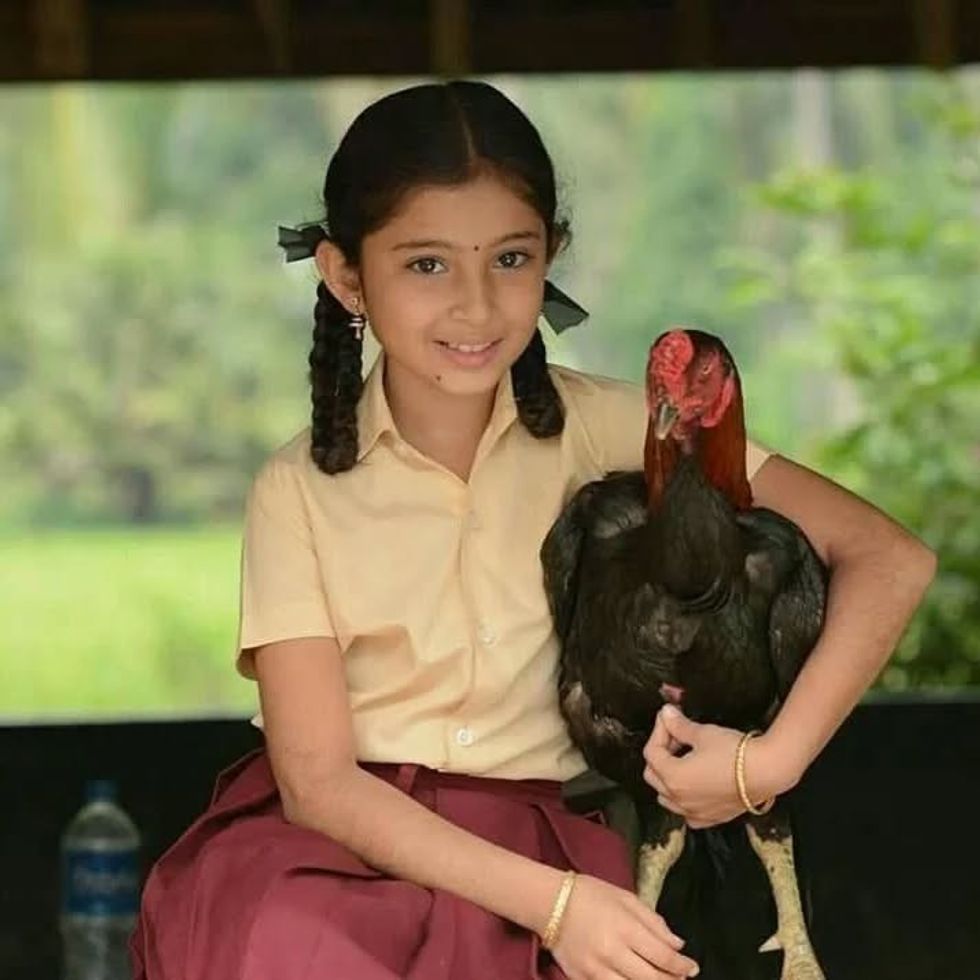 Sara Arjun began her screen career before she turned twoInstagram/
Sara Arjun began her screen career before she turned twoInstagram/
 Depp returns to directing with Modì after more than two decadesGetty Images
Depp returns to directing with Modì after more than two decadesGetty Images 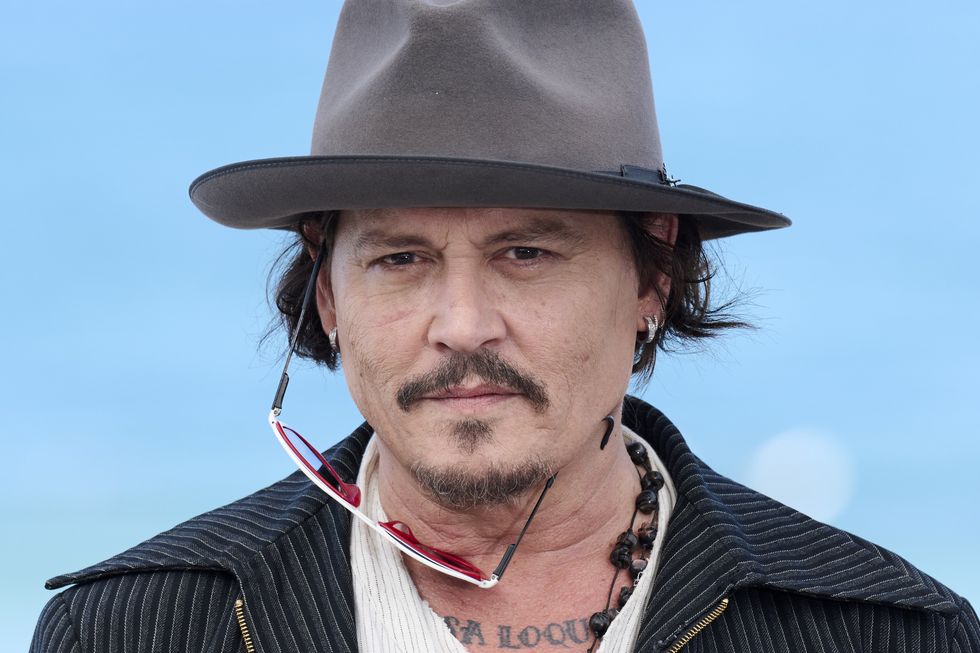 Depp says being pushed out felt like “they wanted me to retire”Getty Images
Depp says being pushed out felt like “they wanted me to retire”Getty Images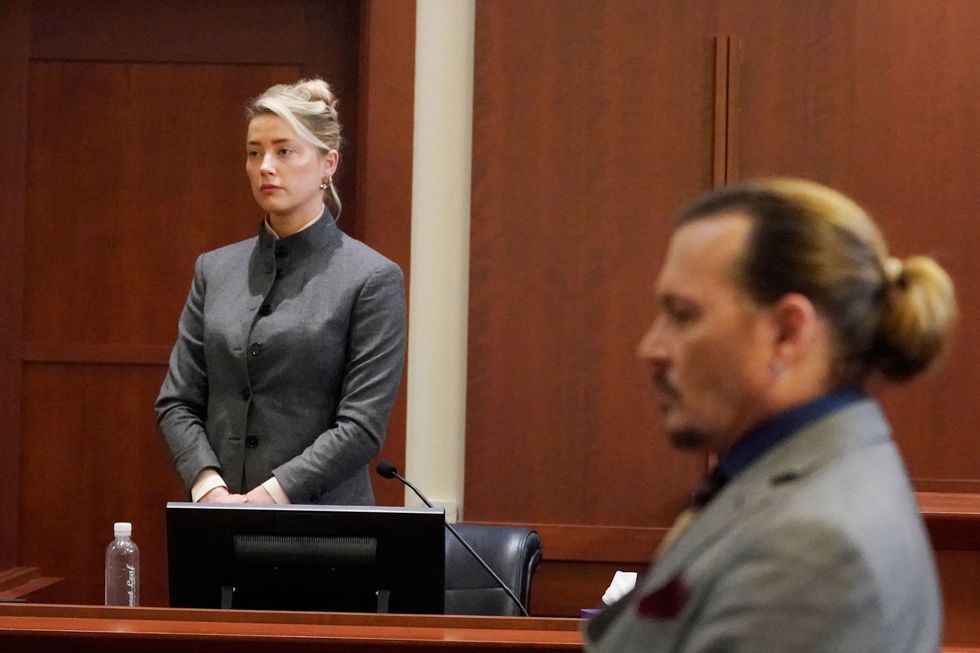 Amber Heard and Johnny Depp watch as the jury leaves the courtroomGetty Images
Amber Heard and Johnny Depp watch as the jury leaves the courtroomGetty Images
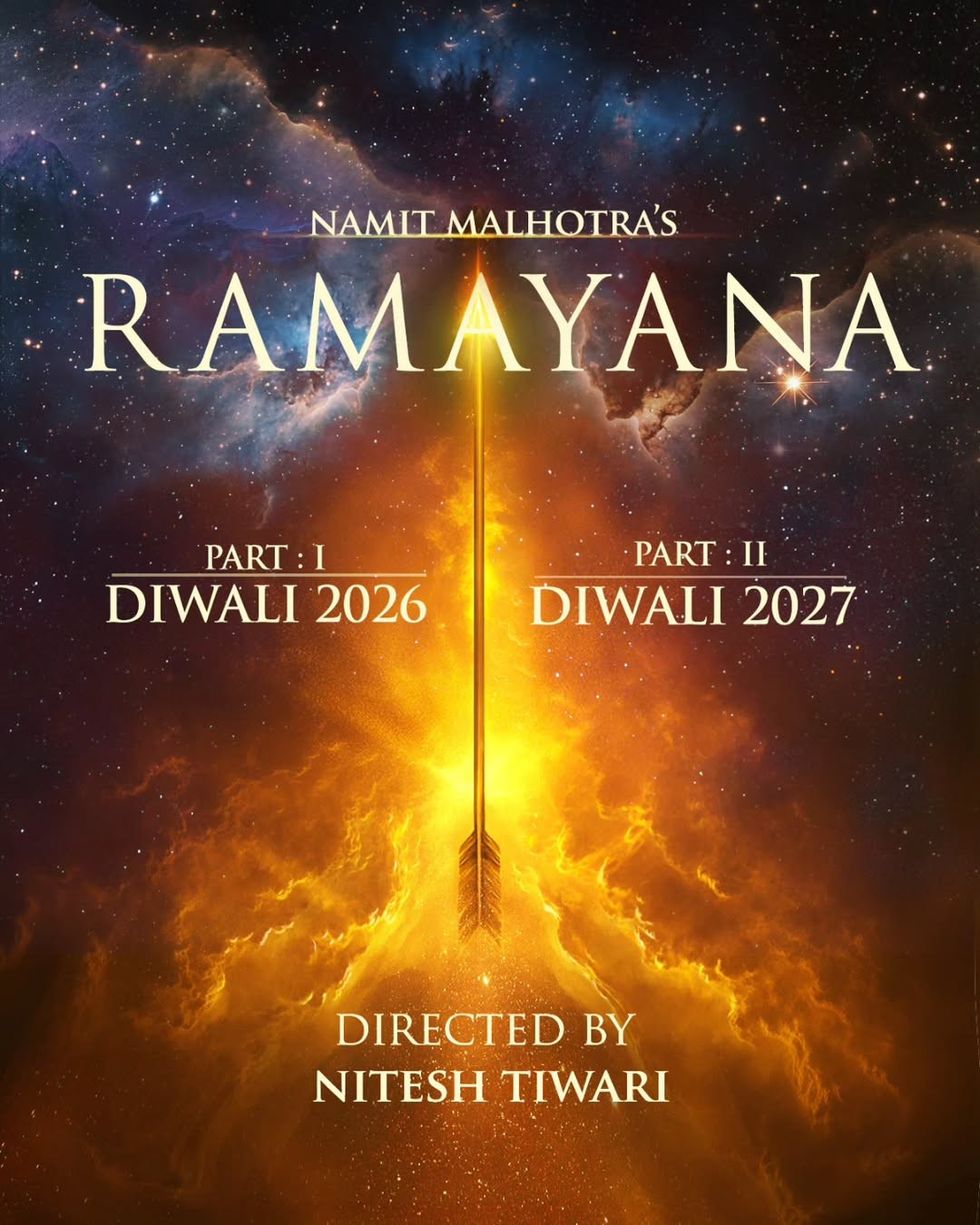 Fans await Ramayana teaser as early reviews spark buzz online Instagram/iamnamitmalhotra
Fans await Ramayana teaser as early reviews spark buzz online Instagram/iamnamitmalhotra  Producer Namit Malhotra reveals how AI will make Ramayana resonate globally with native-language realism IMDB/Reddit
Producer Namit Malhotra reveals how AI will make Ramayana resonate globally with native-language realism IMDB/Reddit 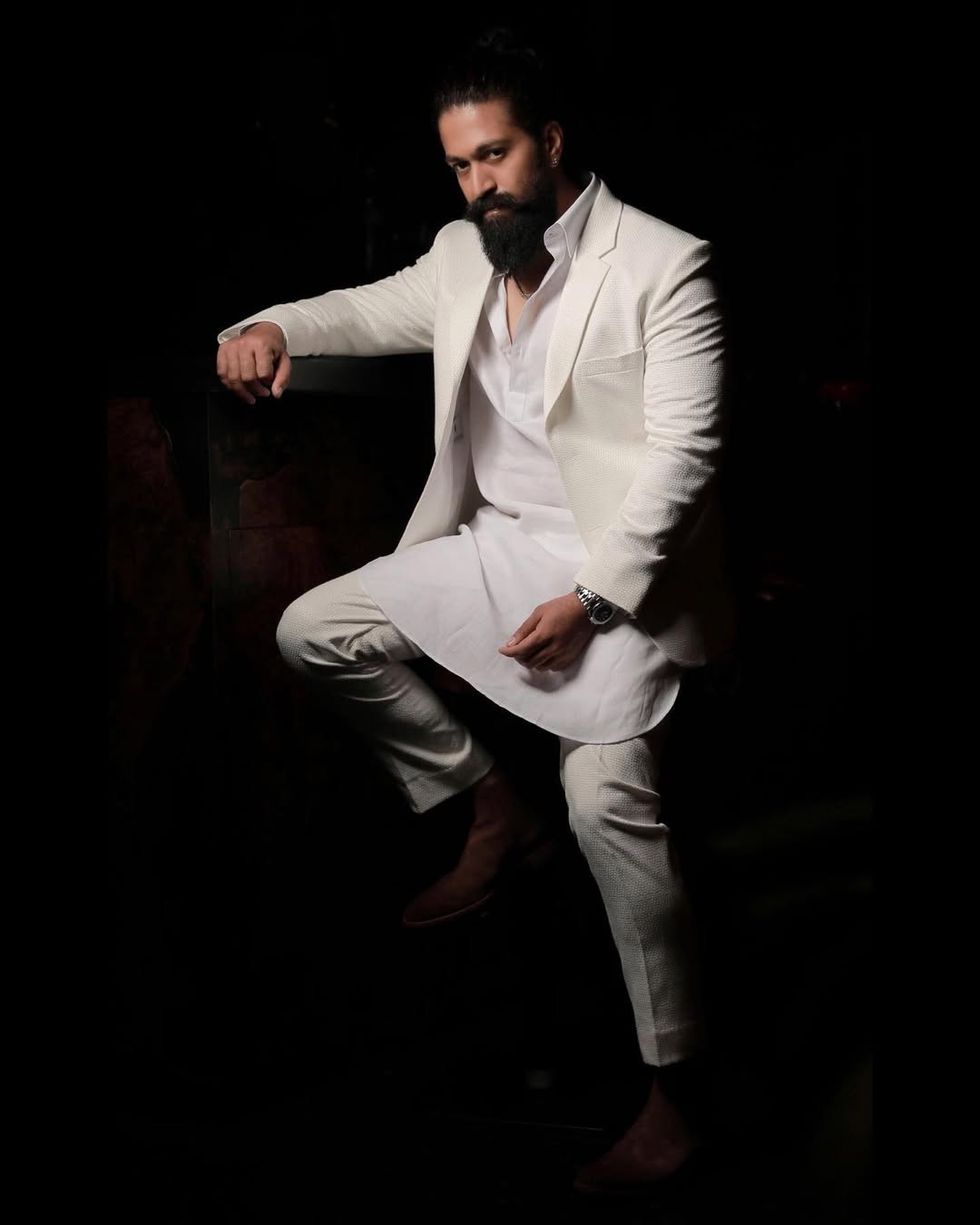 Yash undergoes intense physical training to play Ravana in Ramayana Instagram/thenameisyash
Yash undergoes intense physical training to play Ravana in Ramayana Instagram/thenameisyash  Producer Namit Malhotra reveals how AI will make Ramayana resonate globally with native-language realism IMDB/Reddit
Producer Namit Malhotra reveals how AI will make Ramayana resonate globally with native-language realism IMDB/Reddit  Sunny Deol
Sunny Deol  Ranbir Kapoor hugs Ravi Dubey after wrap speech on Ramayana set Twitter/Raymond/Cinegeek
Ranbir Kapoor hugs Ravi Dubey after wrap speech on Ramayana set Twitter/Raymond/Cinegeek 
 BBC under fire after 50 women share new allegations against Gregg WallaceGetty Images
BBC under fire after 50 women share new allegations against Gregg WallaceGetty Images 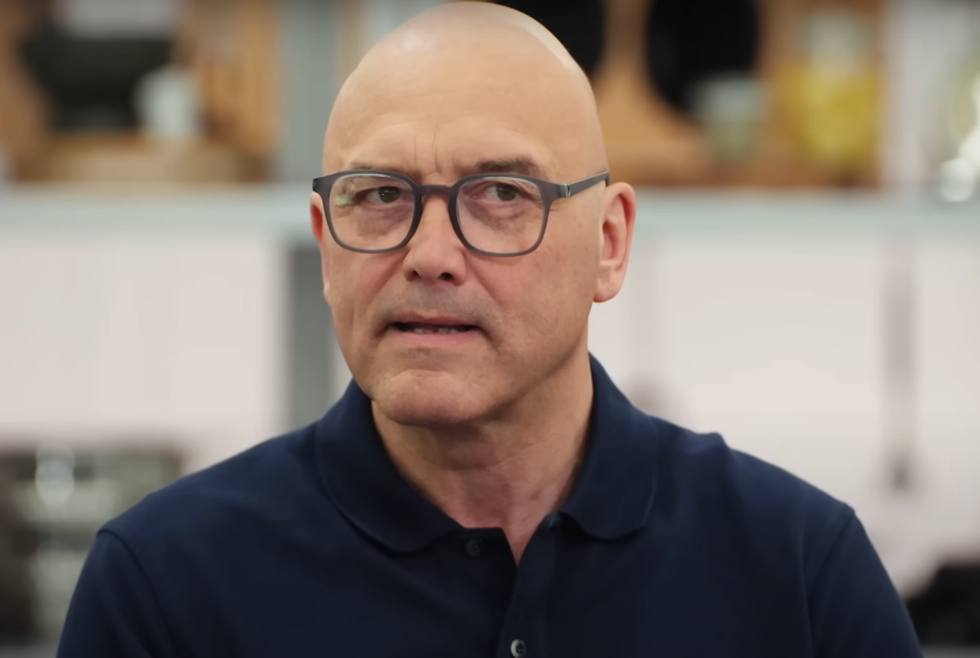 Gregg Wallace seen filming prior to being removed from the showYoutube Screengrab
Gregg Wallace seen filming prior to being removed from the showYoutube Screengrab 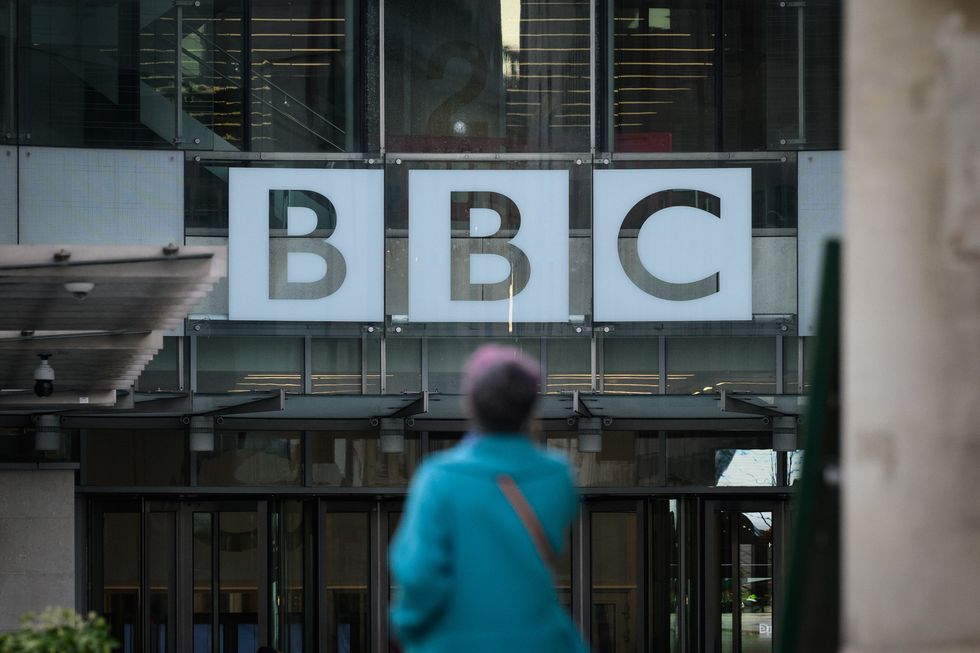 The BBC logo is seen at BBC Broadcasting House Getty Images
The BBC logo is seen at BBC Broadcasting House Getty Images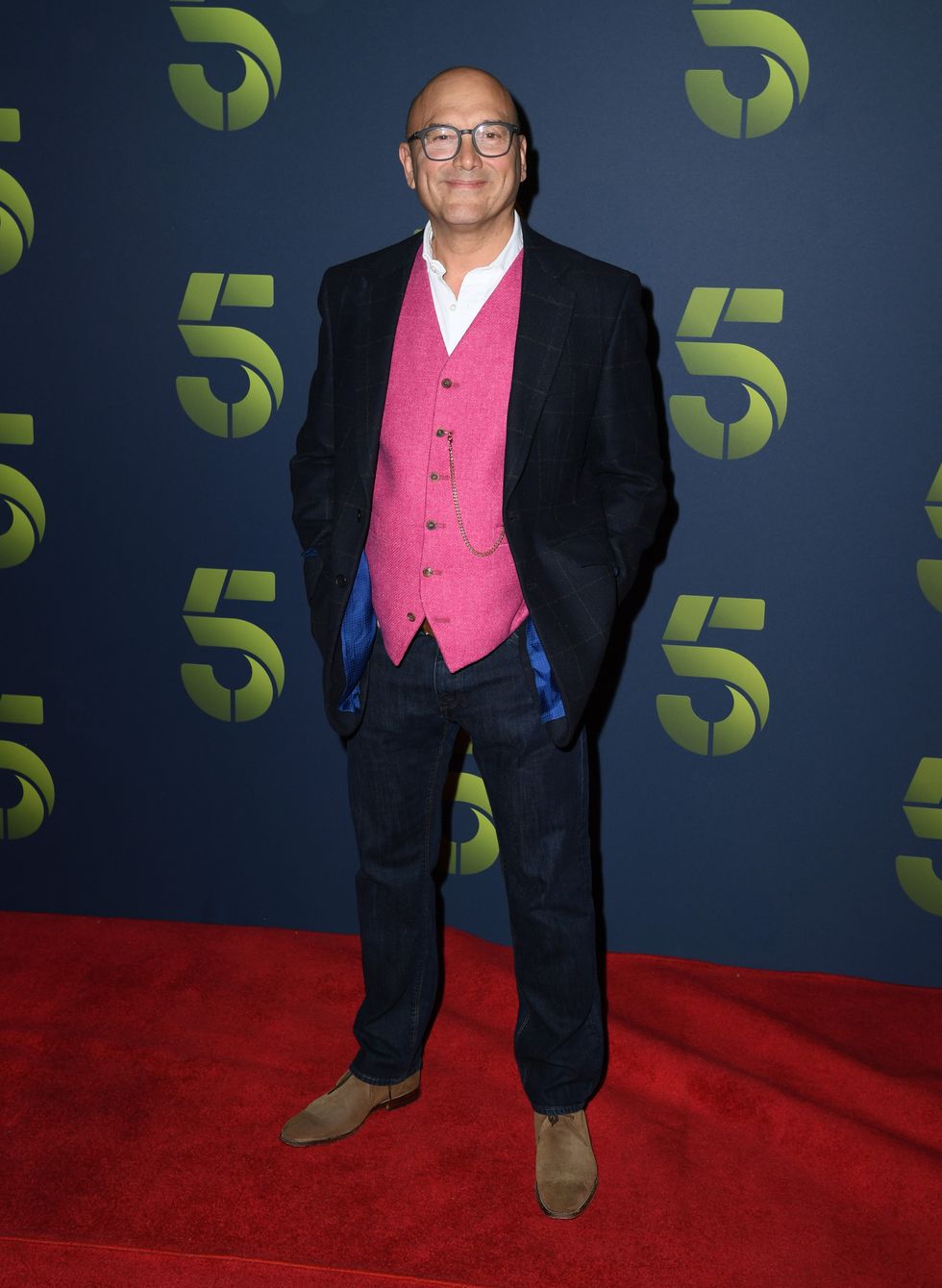 Gregg Wallace attends the Channel 5 2020 Upfront photocallGetty Images
Gregg Wallace attends the Channel 5 2020 Upfront photocallGetty Images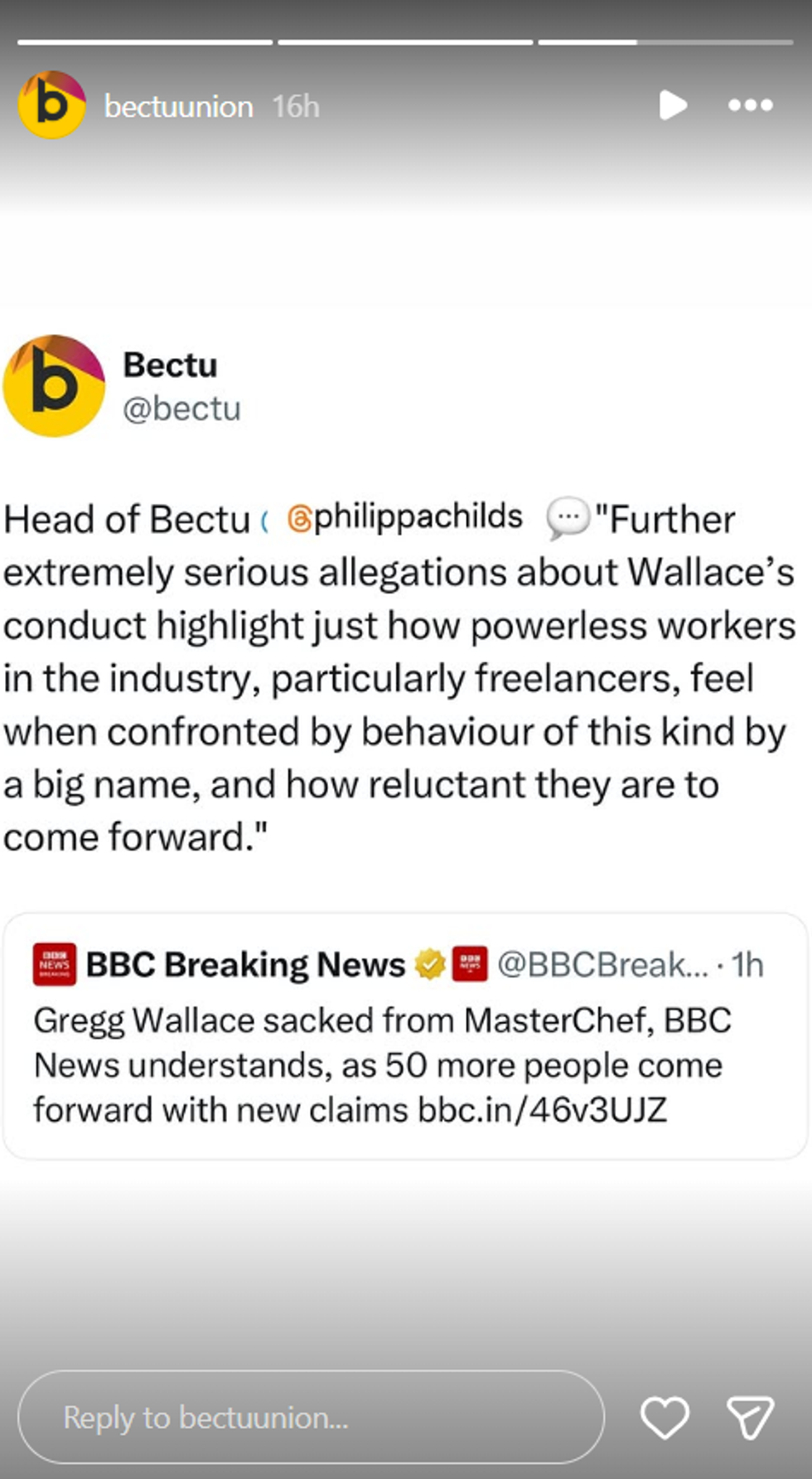 Bectu Union Story Instagram Screengrab/
Bectu Union Story Instagram Screengrab/